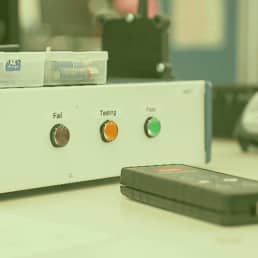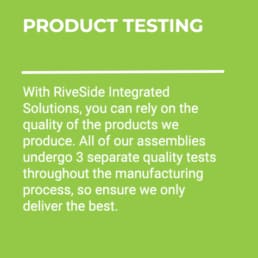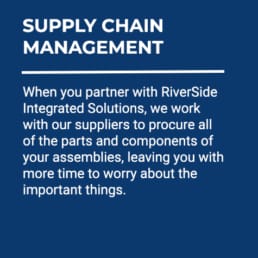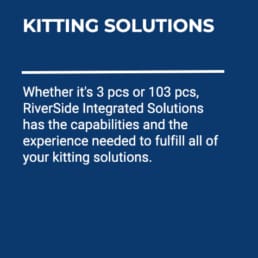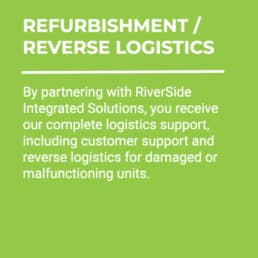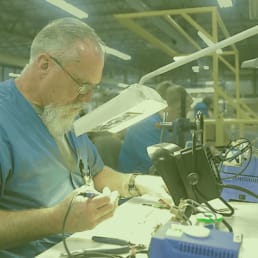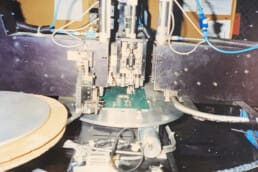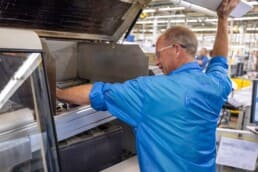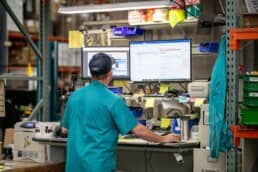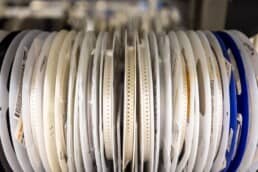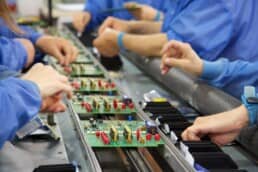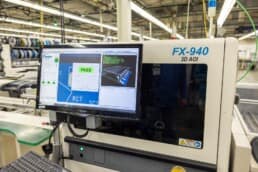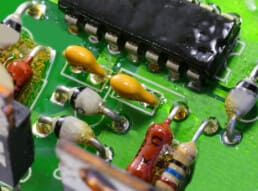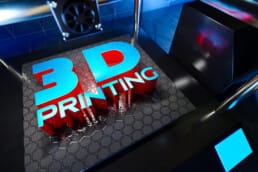In today’s factories and manufacturing facilities, automation is everywhere. It isn’t easy to imagine a production or assembly line without it. Industrial automation uses control systems and equipment, such as computer software and robots, to perform tasks historically done manually. These systems operate equipment automatically, significantly reducing operator involvement and oversight required. Automation technologies often consist of feedback loops and sensory programs. These loops and programs can adjust operating parameters as necessary based on real-time data. The automation technologies used in printed circuit board assembly (PCBA) have advanced significantly in recent years. This is largely due to the digitalization of manufacturing, especially with the Industrial Internet of Things (IIoT). IIoT has opened up more opportunities for companies to take advantage of the benefits of PCBA automation. Innovations in automation enable manufacturers to mass produce and assemble printed circuit boards (PCBs) more easily. PCB production and assembly efficiency has become a vital component in electronics manufacturing. Many parts of the manufacturing process can be automated, from design to PCBA. Original equipment manufacturers (OEMs) should work with their manufacturing partners to design with automation in mind. They should also be mindful of the order of post-production steps and component orientation to ensure efficiency during assembly. These design considerations help ensure that PCBA processes downstream are optimized and efficient. There are several PCBA automation technologies, and the value added comes in different forms. These technologies deliver speed and precision, resulting in lower cycle times and higher product quality. With automated PCBA, personnel no longer have to execute repetitive, time-consuming tasks. This reduces the risk of human error and allows personnel to focus on more value-added responsibilities. Additionally, as little as one operator can control highly automated PCBA processes, further reducing labor and manufacturing costs. Below is a deeper dive into the many benefits of automation in PCBA and the value it delivers. At RiverSide Integrated Solutions (RIS), PCBA is a core competency. Watch our short video to learn more about our PCBA solutions and our commitment to quality. OEMs have historically assembled PCBs manually, leading to slow production with more frequent quality issues. Instead, automated PCBA manufactures significantly higher volumes in a much shorter time. Robotic processes can work 24/7 with occasional outages for maintenance, all without sacrificing quality. This is faster and higher quality than human operators can perform. For this reason, increased efficiency and higher throughput rates are two of the biggest benefits of automation in PCBA. Moreover, robots are typically more versatile and flexible than humans. Changes can be programmed into the automation software. This eliminates the need for training and provides a quick turnaround for production changes. It also further increases operations productivity. In addition to elevated efficiency, automation allows OEMs to collect valuable data from the assembly line. They then use this data to improve maintenance. Predictive maintenance is a new approach primarily made possible with the IIoT and smart manufacturing. OEMs use real-time data to identify potential issues and alert operations personnel when maintenance is needed. Doing so reduces manufacturing downtimes, which leads to higher operations efficiency and lower costs. At RIS, PCB assembly is one of our core competencies. We provide reliable, seamlessly-assembled printed circuit board systems built with extreme precision. Our skilled engineers, technicians and assemblers work to expertly put together a complete PCBA. When you choose RIS, you can expect the hands-on customer care of a small operation with the capabilities characteristic of a larger company. We provide our complete electronics manufacturing services for OEMs in any industry. Our electronics assembly expertise includes:THE INDUSTRIAL INTERNET OF THINGS
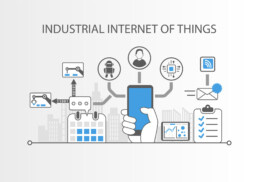
AUTOMATED PCBA TECHNOLOGIES
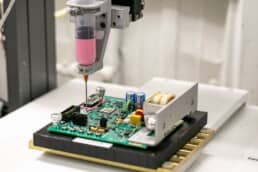
INCREASED EFFICIENCY
DECREASED DOWNTIME
RIS PCBA EXPERTISE
About RiverSide Integrated Solutions
RIS is an advanced contract manufacturer providing robust solutions in circuit board assembly and product assembly. We employ more than 350 people and provide services to OEMs worldwide. We operate two state-of-the-art manufacturing facilities within the US.
With all of the choices in contract manufacturers out there, we know it can be challenging to find someone who understands your business model and has your best intentions in mind. RIS has always proven to be a win-win-focused relationship.
As your one-stop shop, we have the capabilities, capacity, quality assurance standards and resources to support all of your manufacturing needs. We understand that supply chain management is complex and very time-consuming, so we urge our customers to utilize us in the fullest capacity.
Our total-package solutions include:
- Extensive supply-chain network
- Full box-build assembly
- Dedicated Program Team
- Warehousing, kitting and drop-shipping capabilities
- Reverse logistics
- Flexible order fulfillment
- Scalability to meet your needs
Contact us today at (507) 523-3220 to see how we can help with your manufacturing project, or click contact us for a quote.



